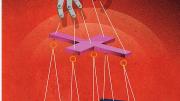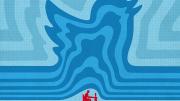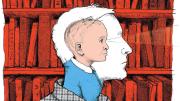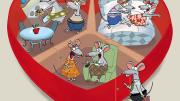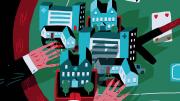Right Now
Dipayan Ghosh on how Russia hacked its way into our politics
The digital tools advertisers rely on can be easily manipulated to influence public opinion on politics.
by Oset Babür
Harvard researchers discuss Southern politics’ roots in slavery
A new book traces today’s politics back to chattel slavery.
How news outlets have the power to change conversation
Observations from Twitter prove that even the smallest news outlets can shape public opinion.
by Oset Babür
The building blocks of how babies reason
Research with infants suggests the ability to understand abstract relationships.
Sexual imprinting and speciation in deer mice
Mate choice is often controlled by genetics, but sometimes culture plays a role.
Meghan O'Sullivan discusses her new book, "Windfall," on energy policy
The United States is finally in a position of energy dominance, but its ability to harness this boom is fraught with challenges.
by Oset Babür
Is knee osteoarthritis a mismatch disease?
Neither increased obesity nor longevity explains the doubling of knee osteoarthritis since World War II.
A new challenge for antitrust
An increasing consolidation of ownership in health care
Brendan Meade studies earthquakes using artificial neural networks
Machine learning may raise the potential for predicting where—and when—an earthquake might strike.
How climate change can change crop nutrition
How global warming can change crop nutrition

